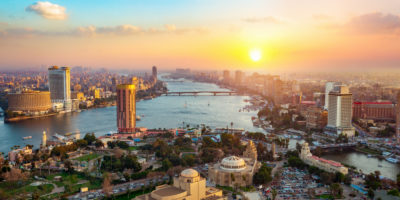-
Венесуэла
Foreign currency regulations and price controls in Venezuela
5 апреля 2017
- Контракты
Exchange controls
The existing Venezuelan foreign currency regulations significantly restrict the ability of private sector companies and individuals to convert the local currency (“Bolivars” or “Bs”) into foreign currency. Because of these restrictions, it is extremely difficult for companies in Venezuela to repatriate profits generated in Bolivars by converting those Bolivars into foreign currency, or otherwise to convert Bolivars into foreign currency to purchase foreign supplies, to pay debt in foreign currency, etc.
The result of these restrictions is the continued generation of trapped cash in Bolivars that cannot be converted into foreign currency. The foreign currency restrictions can also affect the operations of Venezuelan companies if such operations depend on foreign supplies, unless the shareholders or other affiliates of such Venezuelan company are willing to support its operations with foreign currency generated abroad. Also, because of these restrictions Venezuelan companies may not be able to convert Bolivars into foreign currency to pay intercompany debt in foreign currency.
There are currently three different official exchange rates in Venezuela: (a) the Cencoex rate, fixed by the Venezuelan government from time to time, currently at Bs.6.30 per USD (the “Cencoex Rate”), (b) the Sicad rate, fixed by the Venezuelan government from time to time, currently at Bs.13.5 per USD (the “Sicad Rate”) and (c) the Simadi rate, which is in practice fixed by the Venezuelan government on a daily basis, currently at approximately Bs.200 per USD (the “Simadi Rate”). Given the significant restrictions to convert Bolivars into foreign currency, there also exists a parallel or black market, currently at several times the Simadi rate. The Cencoex Rate (Bs.6.30 per USD) appears as hugely overvalued, if compared to the other official rates (the Sicad Rate or the Simadi Rate) or to the black market rate.
Given the existing Venezuelan exchange controls, many Venezuelan companies have accumulated over the years significant amounts of excess cash in Bolivars that cannot be converted into Dollars.
Foreign Investment Regulations
The only areas currently reserved to companies owned or controlled by Venezuelan investors are open-air television, radio broadcasting, newspapers in Spanish and professional services regulated by law. There are other areas, such as oil, that are reserved to the Venezuelan government in which foreign investors may participate only through minority participations in joint venture companies with the Republic or Venezuelan state-owned companies.
Foreign investors (i.e., foreign companies (head offices), foreign shareholders or foreign partners) must register their direct foreign investments in a Venezuelan company (branch, corporation or partnership) with the Venezuelan foreign investment authority within 60 days following the date on which investment was made (the “foreign investment registration”). The foreign investment registration is one of the documents required to purchase foreign currency through Cadivi to repatriate dividends, branch profits, and proceeds from sales of investment, liquidation of the company or capital reductions.
Several documents must be submitted to the Venezuelan foreign investment authority by the foreign investor to obtain the foreign investment registration, including evidence that the capital of the company was paid with foreign currency or contribution in kind that entered Venezuela. To obtain such evidence, the foreign investor must (a) in case of payment in cash, order a wire transfer to the Venezuelan bank account of the company from an account of the foreign investor located outside Venezuela (as a result of the wire transfer, foreign currency transferred out of the offshore account of the investor will be converted into bolivars at the official exchange rate and deposited in bolivars in the Venezuelan bank account), and (b) in the case of contribution in kind, demonstrate that the asset being contributed to the capital of the company was imported into Venezuela (copies of the import manifest, commercial invoice and other custom documents).
The foreign investment registration must be updated annually by the foreign investor within 120 days of the end of the fiscal year.
Price Controls
The Fair Prices Decree with rank, value, and strength of Organic Law (the “Fair Prices Law”), provides for the possibility of the government to set the prices of any type of good or service sold in Venezuela. The Fair Prices Law creates the Single Registry of People which Develop Economic Activities (RUPDAE) in which all persons and companies that perform commercial activities in Venezuela must be registered. The National Superintendence to Defend Economic Rights (the “Superintendence”), created by this law, has established fixed prices for food, personal hygiene products among other products. Once a list of products is published, their price is frozen until the Superintendence sets the new price (in every level of the commercial chain). In cases in which the Superintendence does not set maximum retail prices, companies should self-regulate their prices, and in no case the maximum profit margin will exceed 30% for manufacturers and 20% for importers. The Superintendence may also establish the obligation to label the maximum selling prices in the body of the product. The Fair Prices Law has also created the following crimes related to commercial activities in Venezuela: (i) sale of expired food or products; (ii) import of unhealthy products; (iii) fraudulent alteration; (iv) hoarding; (v) boycotting; (vi) destabilization of the economy; (vii) resale of products of first necessity; (viii) conditioned sales; (ix) extraction smuggling; (x) usury; (xi) alteration of goods and services; (xii) speculation; (xiii) fraudulent alteration of prices; and (xiv) corruption between private parties. Sanctions are extremely onerous and may include: closure, confiscation of assets, fines and imprisonment.
Filings with the Commercial Registry
All Venezuelan companies must be registered with a Commercial Registry. The Commercial Registry contains copies of the company’s articles of incorporation and by-laws, information on its standing (i.e. annual financial statements, liquidation or bankruptcy proceedings), registered address, directors and officers, the existence of branches, and other information. All information filed with the Commercial Registries is public. Companies must notify the Commercial Registry of changes to their articles of incorporation and by-laws and update other information filed with the registry. Companies must also file annual financial statements and periodically file minutes of shareholders appointing directors and officers.
The author of this post is Fulvio Italiani


























